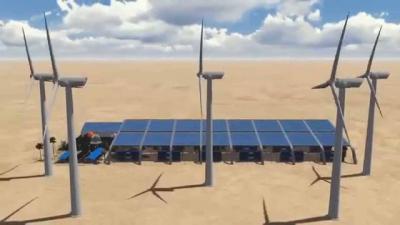A group of scientists has developed a smart aerogel that extracts water from the air without the need for energy. Researchers from the National University of Singapore have created a new material capable of harvesting water from the atmosphere without requiring an external energy source.
The researchers indicated that this material is a smart aerogel that can be used to create drinking water for people living in environments where clean drinking water is difficult to find. It is characterized by being an exceptionally lightweight solid. When viewed under a microscope, it resembles a sponge but does not need to be squeezed to release the water it absorbs from the air, nor does it require electricity to operate. In a humid environment, one kilogram of this aerogel can produce 17 liters of water daily.
The ability of the aerogel to absorb water comes from the long-chain molecules it is made of, known as polymers. According to the researchers, these special long-chain polymers have a sophisticated chemical structure capable of continuously switching between attracting and repelling water. The smart aerogel they developed independently collects water molecules from the air and then condenses them into a liquid to produce potable water. Under sunlight, the smart structures can increase water production by fully transitioning to a water-repellent state. In reality, about 95% of the water vapor carried in the air consists of water. Laboratory tests have shown that the smart aerogel can continuously produce water for several months. When the collected water from the aerogel was tested, researchers found that it meets the World Health Organization's standards for pure drinking water.
It is noted that many researchers have previously developed other methods for extracting water from the air, but all of these inventions required energy from sunlight or electricity as a primary source.




